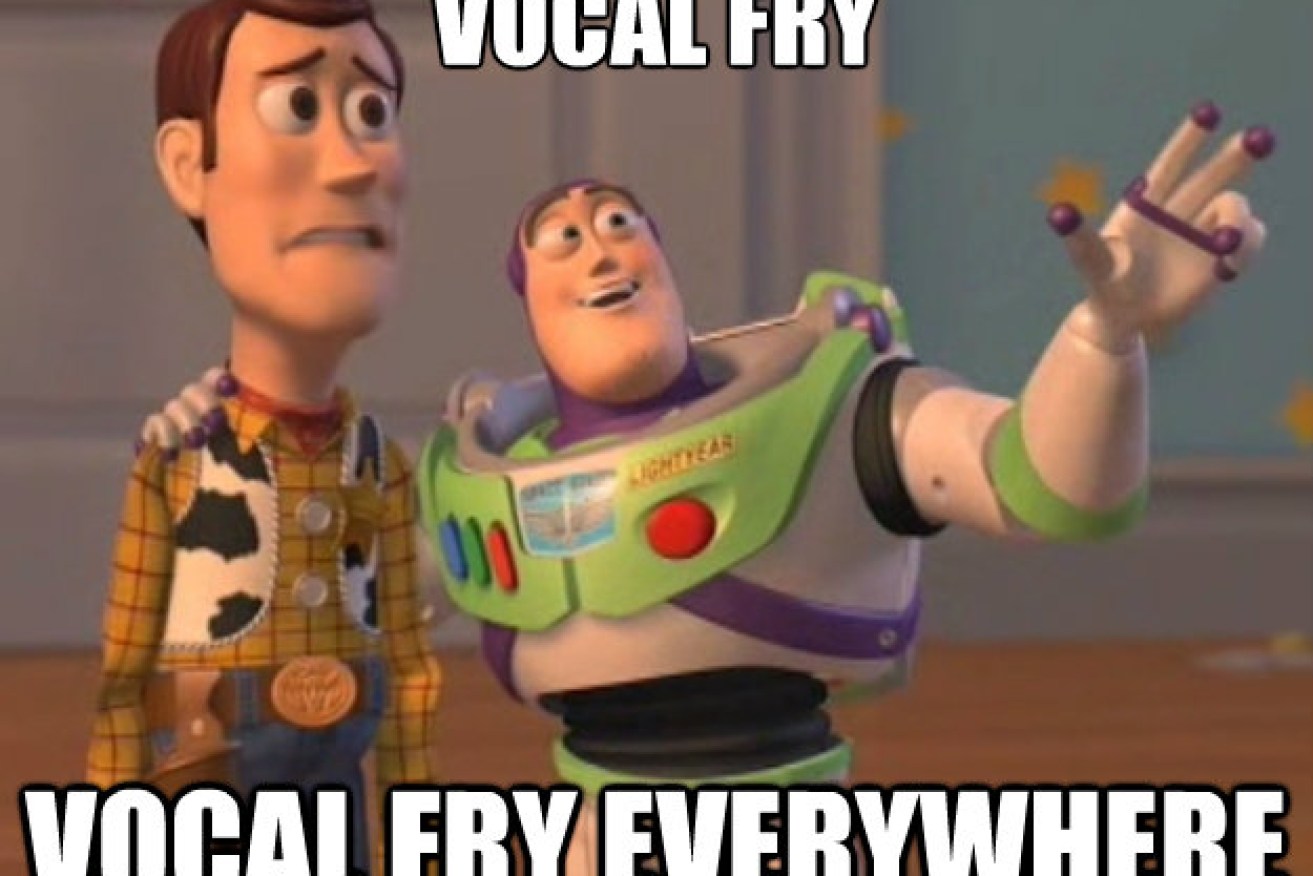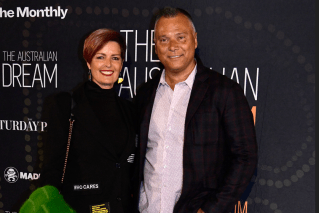What on earth is vocal fry and do you have it?


I was recently talking to a female friend who told me she’d become “extremely self-conscious” of her voice since overhearing a conversation between two men.
The men had just heard a female academic speak and described her voice as “like nails on a chalkboard” thanks to her “extreme vocal fry”.
• Forget the dadbod, what about the mumbod?
• ‘Side bum’ is the newest trend to avoid
• The common phrases everybody gets wrong
My friend, not having noticed anything unusual about the woman’s speech, panicked about her own voice – could she suffer from the condition?
A little research revealed that, yes, she was prone to the habit, which involves prolonging your speaking voice at the lower register, creating a deep, croaky noise some find abrasive.
Still confused? Watch this video for some real-life examples:
Also known as “creaky voice” or “glottalisation”, recent studies have suggested vocal fry could actually have an impact on your career, your relationships and your ability to be understood by others. Especially if you’re a female.
Why? According to a May 2014 study published in the journal PLOS ONE, “young adult female voices exhibiting vocal fry are perceived as less competent, less educated, less trustworthy, less attractive, and less hireable”.
Vocal fry in Australia
Interestingly, vocal fry is not just an American phenomenon – Louise Brown, Senior Lecturer in Speech Pathology at James Cook University, says it is “alive and well in Australia”.
“It has become very socially acceptable in Australia,” Ms Brown tells The New Daily.
“Informal observations of groups of our first-year students suggested approximately a third are using vocal fry consistently in their speech.”
According to Ms Brown, the effect can be distracting.
“In modal voice, which is normal voice vibration, your vocal folds vibrate rapidly,” Ms Brown explains.
“With vocal fry you’re actually holding vocal chords differently and using different air pressure so they vibrate very slowly. Instead of a smooth motion, it is pops of air.”
The Kardashian effect
American actress, writer and voiceover artist Lake Bell tackled the issue head on in her 2013 film In A World.
Ms Bell described the tendency towards vocal fry as the “sexy baby vocal virus”, urging women to ditch the affectation and blaming American reality television (*cough* The Kardashians *cough*) for its genesis.
“I think that’s the culprit. It started there … It’s festering through our great nation and it could be our demise,” Ms Bell told talk show host Conan O’Brien.

Reality television shows like Keeping Up With The Kardashians are often blamed for promoting the spread of vocal fry.
American radio shock jock Howard Stern also criticised the habit on his show after noticing it on The Bachelor.
“It’s driving me mad. It’s the most annoying thing ever,” Mr Stern said.
A sexist phenomenon?
Unfortunately, vocal fry is something of a vicious circle – both the product and cause of workplace sexism.
Research suggests women working in male-dominated industries do it to project a deeper voice and convey authority, intelligence and gravity. Jill Abramson, former executive editor of The New York Times, has been accused of using the tactic.
Some have even traced the trend back to the women of Wall Street, using the below video of female employees at Deutsche Bank as evidence:
Worse, vocal fry is more reviled in females than it is in males who, by the way, do it too – think radio host Ira Glass or late rocker Kurt Cobain.
While the PLOS One study found modal voices were favoured over vocal fry in both genders, female fryers were regarded more negatively than male fryers.

To fry or not to fry
Only one thing is certain: the impact of vocal fry is entirely dependent on context. In some cases, using it might actually pay off.
While it may be considered undesirable in a job interview, experts believe it could also be used as a way to fit in or attract others in a social context, particularly amongst the younger generation.
“Creaky voice may provide a growing number of American women with a way to project an image of accomplishment, while retaining female desirability,” University of Iowa language expert Ikuko Patricia Yuasa wrote in her 2010 study.
“What may sound excessively ‘girly’ to me may sound smart, authoritative and strong to my students,” Stanford University language expert Dr Penny Eckert concurred in The New York Times.
From a health perspective, Dr Adam Vogel from the University of Melbourne’s Speech and Neuroscience unit says vocal fry isn’t actually dangerous.
“I can’t see any negative health risks associated with vocal fry, it’s often just described as a different register,” Dr Vogel tells The New Daily.
Dr Vogel also says it won’t have any impact on how well you’re understood by others, as it tends to occur at the end of sentences.
What’s more, vocal fry could actually become the norm in the future.
According to The New York Times, linguists actually give credit to young women for pioneering most modern vocal trends.
Basically, we could all soon be frying more frequently than a McDonalds kitchen.
Get your creak on.









